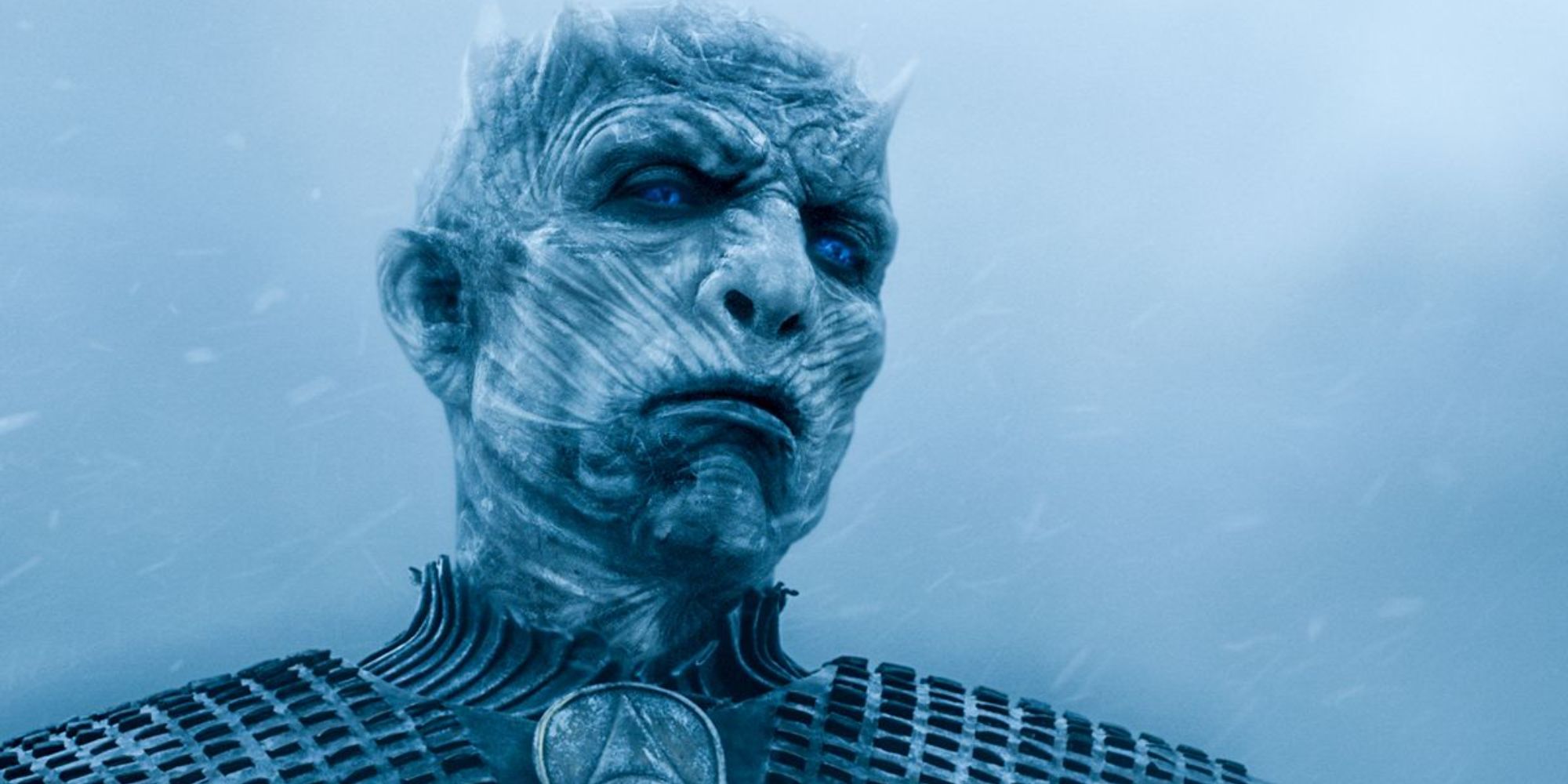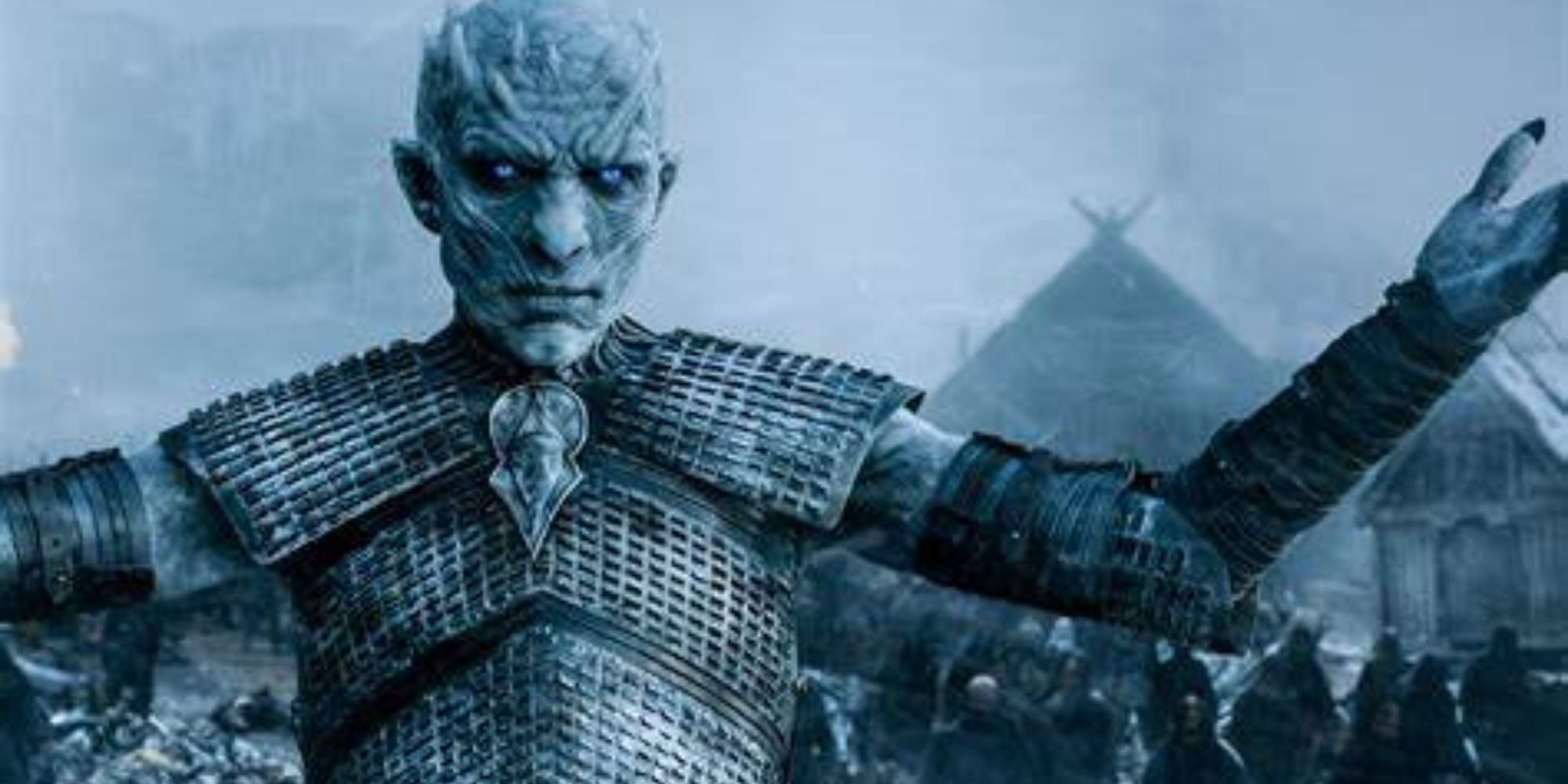The Big Picture
- The White Walkers had a negligible impact on Game of Thrones and its characters, with no lasting effects or character development resulting from the conflict.
- The show wasted the potential of the White Walkers as a promising villain, lacking in depth and motivations compared to other compelling antagonists in the series.
- After their defeat, the White Walkers were quickly forgotten and the show failed to explore interesting conclusions that could have been derived from their storyline.
“Winter is coming!” We kept hearing over and over again, through the characters and the show’s promotional material. The phrase had gained a weighty presence amidst the Game of Thrones’ fandom who quickly learned to associate it with the impending arrival of the White Walkers. And from what we were shown, they felt like the ultimate indestructible threat, looming dangerously close to unsuspecting people of Westeros who were too busy with their politics to spare a glimpse on the other side of the wall. Without taking anything away from the politics, the existence of the Walkers added a crucial layer of tension to the story. It was a powerful setup and one that demanded just as powerful of a payoff. But when the much-anticipated battle between the alive and the dead arrived, it turned out to be one of the most disappointing moments in the history of TV.
White Walkers Had a Very Negligible Impact on ‘Game of Thrones’ and Its Characters
You’d think that facing an existential threat as big as the White Walkers would have a profound impact on the characters. Maybe they would come out of the battle with PTSD after having faced a supernatural horror beyond comprehension. Maybe they’d spiral into an existential crisis mode after learning about this unknown dimension of reality. Maybe the otherworldly encounter would force the characters to realign their perspective, much like an astronaut on the moon staring down at Earth, and see their petty squabbles for what they are, petty. But the show takes all this rich potential and flings it off the wall. We get absolutely nothing in terms of character development from the conflict. In fact, everyone forgets about the White Walkers as soon as they’re defeated. No one seems to have any remaining questions or thoughts about the whole ordeal. They move on without ever mentioning it like it was just a minor inconvenience, a routine case of flu.
Storywise, there was absolutely nothing that White Walkers did to impact the ultimate outcome. There is a brief moment, after the war, Sansa (Sophie Turner) suggests that their armies are exhausted and require rest before moving to the next battle, but this never came into play during the sacking of King’s Landing. The war was utterly one-sided and Daenerys’ (Emilia Clarke) army seemed just as eager to kill and burn without showing any sign of fatigue. There were many character deaths — Beric Dondarrion (Richard Dormer), Jorah Mormont (Iain Glen), Theon Greyjoy (Alfie Allen), and others — but none of them held any emotional impact because it felt predictable, and we had no time to sit down and meditate on the loss. If anything, the death felt like a contrived convenience for the showrunners to cross a few characters off the list, so they’d have an easier time neatly concluding the story.
‘Game of Thrones’ Wasted a Promising Villain With the White Walkers
For the better part, Game of Thrones has been excellent at producing menacing and compelling villains. The reason behind this is that the antagonists always have, sometimes awful, but always convincing motivations behind their villainy. As a bastard child, Ramsay (Iwan Rheon) was desperate to prove his worthiness to his father and gain legitimacy. Cersei (Lena Headey) had such a strong sense of motherhood that she was willing to destroy the whole realm for it. As despicable as Ramsay or Cersei might be, you could always trace the contours of a believable personhood behind their cruelty. In contrast, the Night King is evil for the sake of being evil, to drive the plot forward. We’re told that he wants to kill Bran (Isaac Hempstead Wright) to wipe out world’s memory and that he wants to destroy the world of men. But what exactly motivates him to carry out this Herculean endeavor, we never learn.
Initially, when the Night King was introduced, there was an icy fog of mystery surrounding him that intensified the dread. The way he stared down at Jon Snow (Kit Harrington) felt personal and hinted at an epic battle to come. But as the show progressed, it blatantly abandoned the Night King’s character development. And when the battle of Long Night finally commenced, we didn’t know how to feel about him. He didn’t have any discernible personality that would allow us to feel any emotions for the character. Because of how little we know about the Night King, we didn’t even have a good reason to hate the character. We saw Joffrey (Jack Gleeson) enact his cruelty, and we hated him so much that his gruesome death provided a sweet satisfaction. But when the Night King dies, it felt hallow, and there was nothing do but shrug and say “Well, that’s that!” To top that off, the promised showdown between Jon and the Night King never happened, and instead, it was Arya (Maisie Williams), a teenager, who finished him off.
The White Walkers Were Forgotten After Their Defeat in ‘Game of Thrones’
Of course, there was no reason for the Night King’s arc to conclude in the way that it did. Given the vast lore and fascinating world of Game of Thrones, there are many, many interesting conclusions that could have been extracted from White Walkers. Disappointed fans of the show have been rewriting the ending to Game of Thrones for quite some time now, and each of them presents a better alternative to the Night King’s arc than the one offered by the show. Perhaps White Walkers could have won the battle at Winterfell, forcing Jon and company to retreat South, being forced to ally with Cersei, even after the betrayal, giving her the upper hand. Perhaps White Walkers win the battle, and Bran uses his weird time travel powers to change the past, and the present. Or Perhaps Jon Snow could have brokered some kind of peace agreement with the Walkers, and found a way to co-exist alongside them. After all, we’ve seen Craster (Robert Pugh) survive under the shadow of the Walkers, so we know that they can be reasoned with. The possibilities were endless.
It’s to the show’s credit that they were able to build such a level of hype for the Night King. But in doing so, the show set an unrealistic level of expectation that was near impossible to deliver upon. Crafting a satisfying conclusion would have been insurmountably difficult, that much is understood. But the problem with Game of Thrones isn’t that it delivered a bad conclusion, but that it never even attempted to write a good one.






